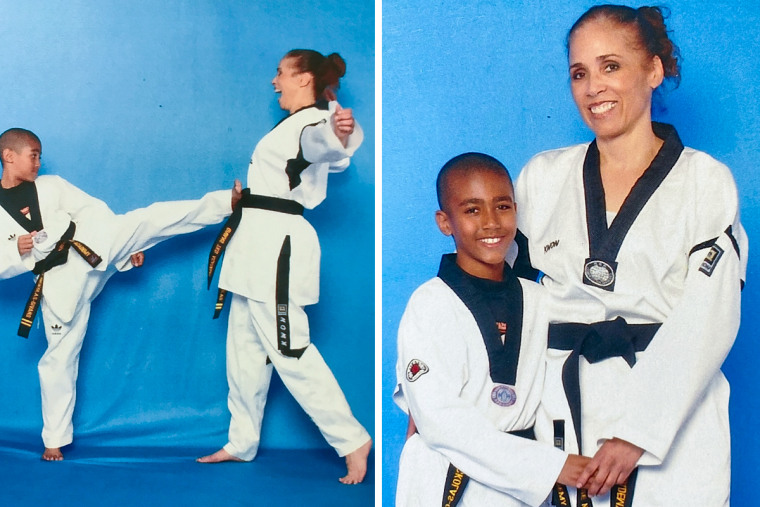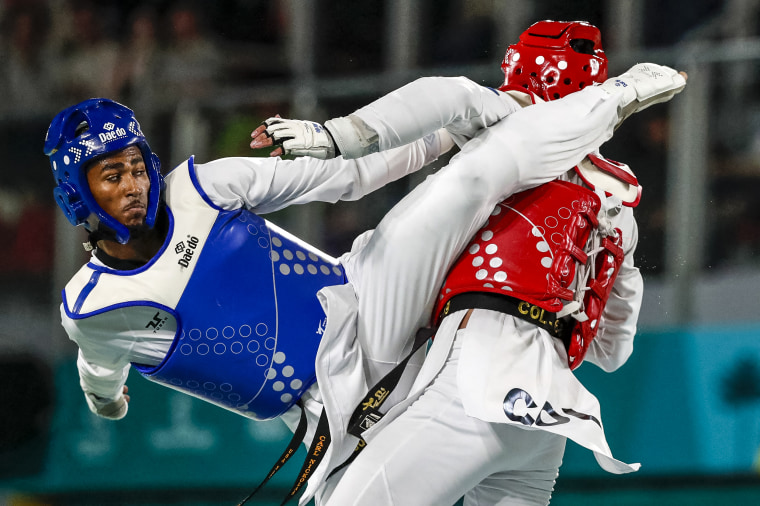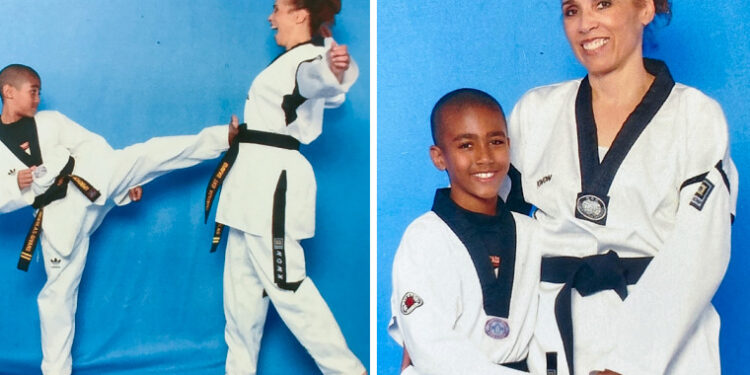He displays this dexterous maneuver and others all with a smile and a youthful buoyancy because he is not in competition. In a match, Nickolas, the No. 2 fighter in the world in his weight class, sheds his lighthearted nature and transitions into a focused and violent attacker.
“He becomes this other person in the ring,” said Denise Nickolas, his mother, who introduced him to the sport when he was 3. “It’s nothing like who he is.”
Nickolas won gold at the Pan American Games last year and the silver medal at the 2023 World Championships at 80 kilograms, or 176 pounds, the first U.S. medal in that event since 2009. He bolted to No. 2 in the world rankings in January, making him eligible for the Olympics. It was the manifestation of a dream that was conceived when he pleaded with his mother to enroll him in karate classes after he watched the Power Rangers and the Teenage Mutant Ninja Turtles on television as a kid.
“My mom was smart. She looked up combat sports for a kid and found martial arts that are in the Olympics, where you could build a career,” he said. “And she found this random taekwondo school and put me in it.”

Denise Nickolas enrolled, too, and became a black belt before she retired a few years ago. For years, she has watched her son, at first with fear, but mostly with admiration. The thing is, it was not just her son’s success in competition that has made her proud.
“I am grateful for C.J.’s success. But my best moments with him and taekwondo are not when he’s on the stand celebrating victories,” Denise Nickolas, 62, said.
From early on, a young C.J. displayed a heart and humanity that defied his age. When he was competing in a tournament at 9 or 10, with another match to go, he had already advanced to a national competition. But he wanted one of his teammates to join him. So he went into the stands and asked his mother whether he could forfeit his last match, which would allow his teammate and friend to qualify for the national tournament.
“And so he bowed out,” she recalled. “It was shocking that he came up with that gesture on his own, in that moment, at that age.”

On another occasion, when he was about 17, one of his teammates sobbed after she lost a gold medal match. His mother watched as her son comforted her and then took off the gold medal he had won and exchanged it for her silver medal.
“That’s the heart of who he is,” she said.
When Nickolas badly hurts an opponent, “every single time I’ve seen him, as soon as the fight is over and people are trying to talk to him, he’s running to get ice for that person and he’ll sit there with them.”
Another time, after a knockout victory, he was not allowed in the back of the venue to check on the opponent’s well-being. “So he came to me and said, ‘Can you please go check on him, because I don’t think he has any family or friends here with him?’ And I did. That’s just him. So it makes you think: ‘Who even is this person when he’s in the ring?’ It really doesn’t match up to the person he is outside the ring.”
Nickolas transforms into a focused, intentional and driven fighter.






